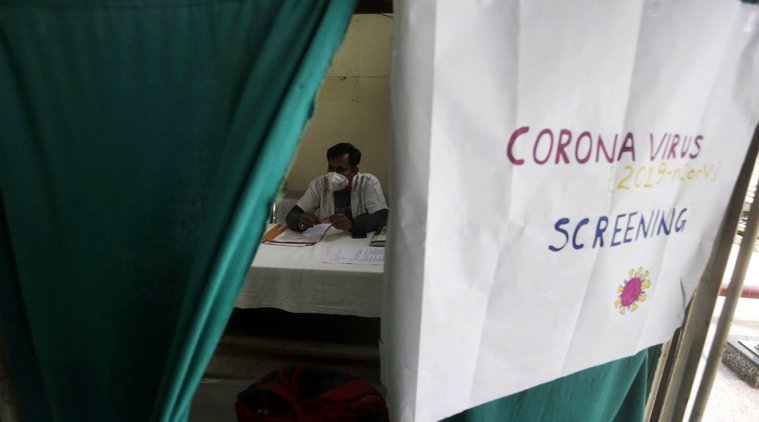Virus and the migrant: India-Gulf region is second largest migration corridor, must not be blocked
More than 100 countries across the world have reported coronavirus (coronavirus and the migrant) cases. Prime Minister Narendra Modi has cancelled his visit to European countries because of the pandemic. The outbreak has affected people’s mobility, both within nations as well as travel across borders. Almost all countries in the Persian Gulf have stopped accepting migrants from India. Nearly 600 fishermen from India are stuck on the coronavirus-hit Kish island in Iran, which has requested the government of India to repatriate them. After the successful repatriation of Indians from the COVID-19 (coronavirus and the migrant) hit areas of China, the extradition of these fishermen could prove to be a major challenge for the Indian government.
 The predicament of Indian migrants appears grave in view of the travel restrictions imposed by several West Asian countries. For instance, the Kuwait General Administration of Civil Aviation has suspended all flights to and from India for two weeks. Qatar and Saudi Arabia have imposed temporary travel bans on passengers from India. Indians who want to return to the countries where they work, after the end of the ban period, will require medical certificates from authorised hospitals. This could create more hurdles for the migrants. For instance, Indians passengers planning to return to Kuwait will require medical certificates from hospitals that are recognised by the West Asian country’s government. Most government hospitals in the country have their hands full with (coronavirus and the migrant) coronavirus-infected patients and it’s not clear if the healthcare institutes recognised by the Kuwait government have facilities to diagnose a COVID-19 (coronavirus and the migrant) infection and if they are equipped with quarantine facilities. The government must take up this issue with the relevant authorities in Kuwait to facilitate the smooth return of Indians after the travel ban is lifted. The list of Indian hospitals recognised by the Kuwait government must be put up on public fora.
The predicament of Indian migrants appears grave in view of the travel restrictions imposed by several West Asian countries. For instance, the Kuwait General Administration of Civil Aviation has suspended all flights to and from India for two weeks. Qatar and Saudi Arabia have imposed temporary travel bans on passengers from India. Indians who want to return to the countries where they work, after the end of the ban period, will require medical certificates from authorised hospitals. This could create more hurdles for the migrants. For instance, Indians passengers planning to return to Kuwait will require medical certificates from hospitals that are recognised by the West Asian country’s government. Most government hospitals in the country have their hands full with (coronavirus and the migrant) coronavirus-infected patients and it’s not clear if the healthcare institutes recognised by the Kuwait government have facilities to diagnose a COVID-19 (coronavirus and the migrant) infection and if they are equipped with quarantine facilities. The government must take up this issue with the relevant authorities in Kuwait to facilitate the smooth return of Indians after the travel ban is lifted. The list of Indian hospitals recognised by the Kuwait government must be put up on public fora.
Several airlines in the country have cancelled their services to Doha after the Qatar government’s travel ban. Due to the high demand for flight services in the India-Gulf corridor, flight fares are likely to increase after the travel ban is lifted. This will add to the financial burden of Indian workers. Airlines should announce free re-booking as part of their corporate social responsibility during this difficult time.
The travel ban has created panic among Indians abroad as well. Social media is rife with discussions about the travel bans imposed by the Indian government. In some cases, the travel restrictions imposed on citizens of European countries such as Germany, France and Italy have been misinterpreted as applying to Indian citizens travelling from such countries to India. It is very important, therefore, to disseminate country-specific advisory notes in regional languages, apart from English, as an effective way to reach Indians abroad and their families in India.
Passengers travelling to India are facing difficulties after their arrival as there is little information about the self-reporting form that must be filled by international passengers. They sometimes have to wait long hours in the airport to acquire this form, fill it and clear immigration. Moreover, there is very little information about the counters in international airports in India that offer this service before passengers proceed to immigration clearance. This must be addressed to avoid overcrowding and chaos in airports.
The India-Gulf region is the second largest migration corridor in the world. It is imperative that governments in the region take measures to ensure that travel restrictions imposed as a result of the COVID-19 (coronavirus and the migrant)outbreak do not affect livelihoods of people and hinder mobility in the long-run.
This article first appeared in the print edition on March 17, 2020 under the title ‘Virus and the migrant’. Rajan is professor at Centre for Development Studies, Thiruvananthapuram, Kerala and Arokkiaraj is a post-doc Fellow at Leibniz Science Campus, Eastern Europe-Global Area in Leipzig, Germany.
Source: The Indian Express | S Irudaya Rajan and H Arokkiaraj
For more details : Ensemble IAS Academy Call Us : +91 98115 06926, +91 7042036287
Email: [email protected] Visit us:- https://ensembleias.com/
#india #prime_minister #narendra_modi #government #policy #blog #current_affairs #daily_updates #free #editorial #geographyoptional #upsc2020 #ias #k_siddharthasir #ensembleiasacademy #coronavirus #migrant #india_gulf #tuesdaythougths #upsc2020 #ias #k_siddharthasir #coronavirusindia





